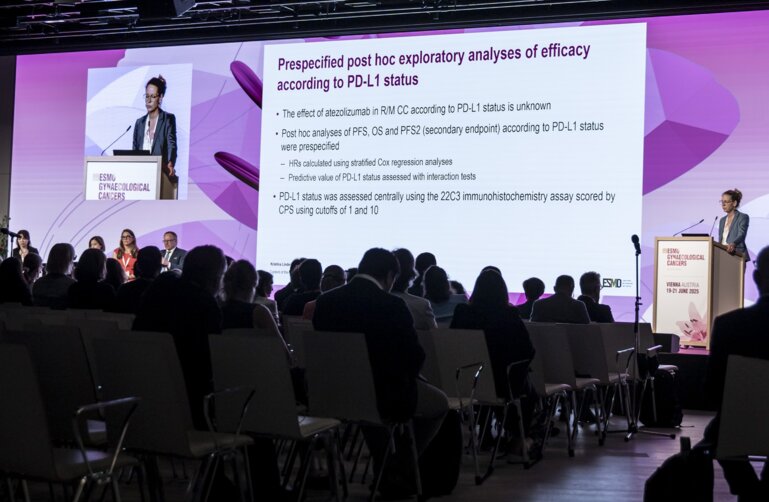
AI-driven tool shows to improve risk stratification in colorectal cancer
A system integrating computer tomography scans and pathological markers offers promise to personalise adjuvant therapy

A system integrating computer tomography scans and pathological markers offers promise to personalise adjuvant therapy

Findings from the NeoADAURA and the CheckMate 816 provide novel insights on the role of neoadjuvant osimertinib and nivolumab in the perioperative setting

Positive findings from the CAPTURE and AMPLITUDE trials highlight the importance of early testing patients for BRCA and HRR mutations

Recent research indicates that older age remains a barrier to accessing optimal treatment, despite a growing number of patients over 70 with ovarian and endometrial tumours

Final analyses of the PICCOLO trial confirm the efficacy of the antibody–drug conjugate in recurrent platinum-sensitive ovarian cancer

An analysis of the BEATcc trial showed that PD-L1 is not a robust biomarker for response to treatment

The ROSELLA trial highlights the efficacy and tolerability of the combination even in patients with a poorer prognosis

A small Japanese study provides useful insights on determining the role of these agents in cancer care, but studies in larger, more diverse populations are needed

Newly-released ESMO recommendations critically assess specific germline pathogenic variants in terms of cancer-related mortality and testing implications for patients and their families

Novel evidence demonstrates the clinical utility of circulating tumour DNA in patients with HR+/HER2- cancers harbouring ESR1 and PIK3CA mutations
This site uses cookies. Some of these cookies are essential, while others help us improve your experience by providing insights into how the site is being used.
For more detailed information on the cookies we use, please check our Privacy Policy.
Necessary cookies enable core functionality. The website cannot function properly without these cookies, and you can only disable them by changing your browser preferences.